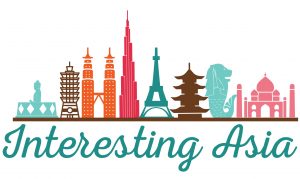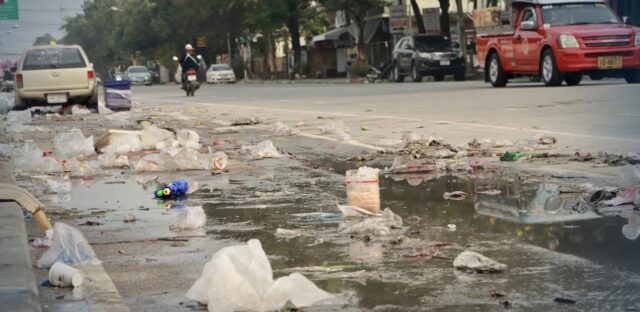This year saw Songkran festivities resume across Thailand. It was the first time in three years the country could enjoy celebrations without restrictions, and it was undoubtedly a welcome sight. However, there is a downside that needs to be pointed out. The amount of waste generated over the holiday can be staggering.
In Bang Saen along Thailand’s Eastern Seaboard, a considerable amount of rubbish was left around the beach over the Songkran holiday with locals forced to tidy up. However, that was nothing compared to the situation in Pattaya a few years ago. According to local media reports, tourist areas across the city were awash with trash in the aftermath of the celebrations.
Another example of this was seen in 2018 when 101.5 tons of waste was collected on Khao San and surrounding roads during the holiday period. Considering the size and scale of this year’s activities, similar numbers can be expected.
It’s not all doom and gloom, however. Recyclable materials are likely to be sorted and removed before being sent to the landfill. On the other hand, the cleanup of non-recyclable plastic is problematic. These materials are at risk of being sent to the landfill where they can be washed into streams and rivers that filter into the ocean.
Also Interesting: Havaianas aims to recycle the flip-flops it sells in Asia Pacific
Songkran pollution concerns started before water splashed
Songkran pollution isn’t limited to waste left over after the holiday. Before this year’s festivities, the Department of Pollution Control (PCD) warned people against using water from 18 sources in Bangkok and Nonthaburi because of bacterial contamination.
These had previously been used as water sources by those splashing water in and around the Thai capital. However, testing by the PCD in March found them to contain unsafe levels of fibrobacterota, chlorobiota and bacteroidota bacteria concentrations.
Looking ahead, more comprehensive efforts to combat Songkran pollution are needed. This was becoming a major issue prior to the COVID-19 pandemic but fell by the wayside with no one splashing water for the past few years. With the fun returning in full, so too must efforts to curb pollution and keep water sources clean.
Keep Reading: Big business hopes to kickstart recycling in Vietnam


































